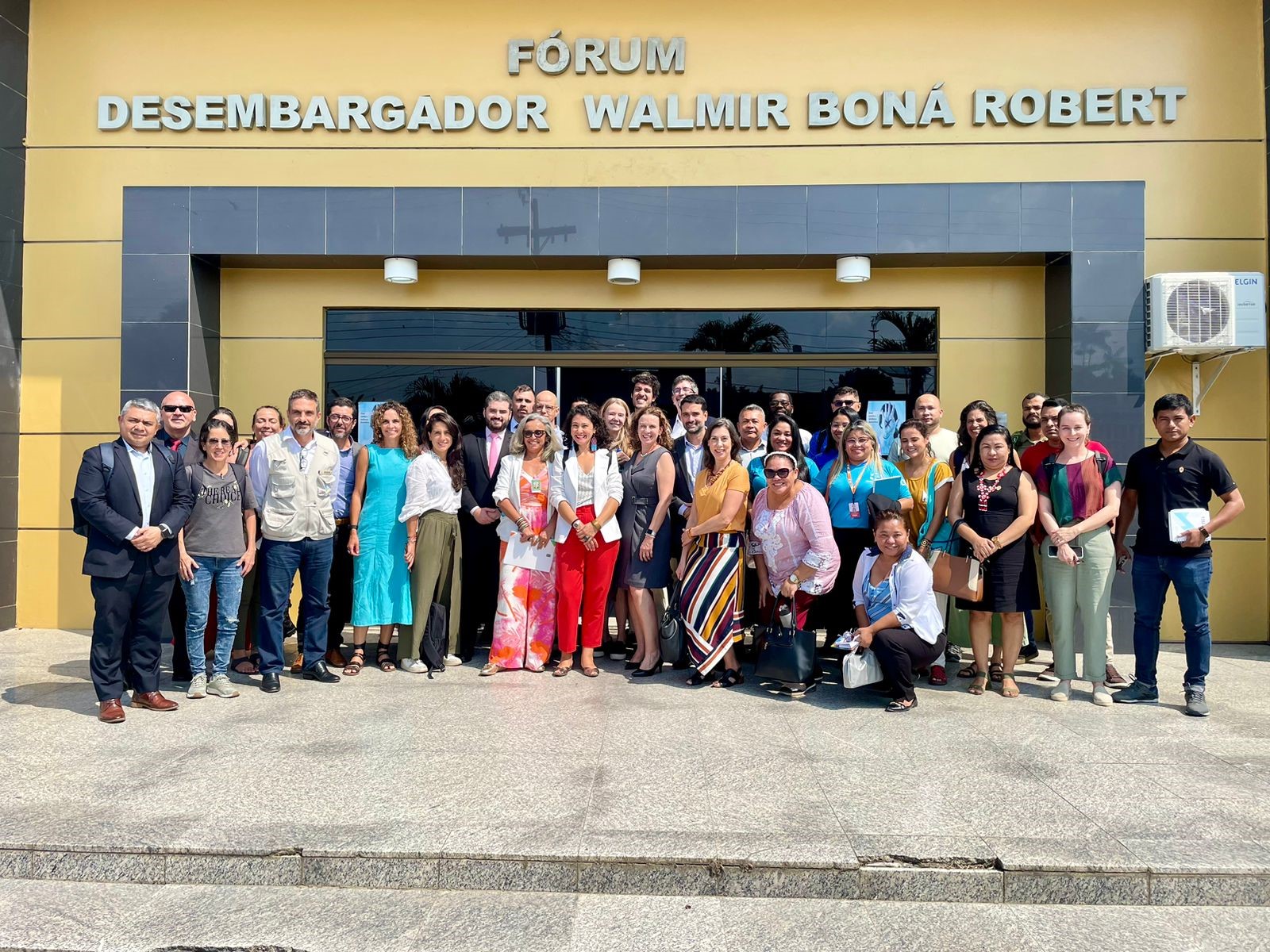
Situated at the tri-border area of Brazil, Colombia, and Peru, the Brazilian city of Tabatinga faces significant challenges, including the presence of organized crime and drug trafficking. In response to these issues, Tabatinga was selected as the venue for the Binational Meeting between Brazil and Colombia on 'Security and Social and Community Development at the Borders.' Additionally, the city will host the launch of the 'Federal Public Defender's Office (DPU) on the Borders' project. This initiative, promoted by the Ministry of Justice and Public Security (MJSP) through the National Secretariat for Drug Policy and Asset Management (SENAD), will take place on Tuesday, August 23.
The Center for Studies on Drugs and Community Social Development (CDESC), a collaborative project between SENAD/MJSP, the United Nations Development Program (UNDP), and the United Nations Office on Drugs and Crime (UNODC), participated in the event by presenting research and data on drug trafficking in the Amazon and its effects on indigenous peoples and territories.
The event, which gathered government representatives and civil society stakeholders to propose solutions for the region, also featured a series of discussions and listening sessions with indigenous leaders and members of various ethnic groups. These sessions aimed to understand and incorporate local demands, ensuring that psychosocial care initiatives are effectively tailored and that access to rights and justice is guaranteed.
Carried out by SENAD in partnership with the Federal Public Defender's Office (DPU), the "DPU on the Borders" project provides mobile legal assistance to individuals incarcerated in prisons located in border cities. "The significance of this project lies in its ability to deliver legal services and conduct inspections in prisons within border regions, where there is a high rate of incarceration for drug trafficking, particularly among women and other vulnerable groups, including indigenous populations in many of these municipalities," explained Letícia Torrano, a representative of the DPU. In Tabatinga, legal assistance will be offered one week each month.